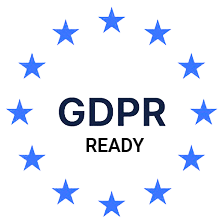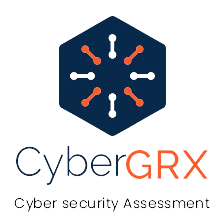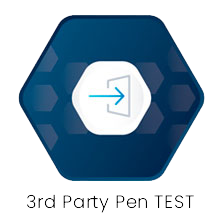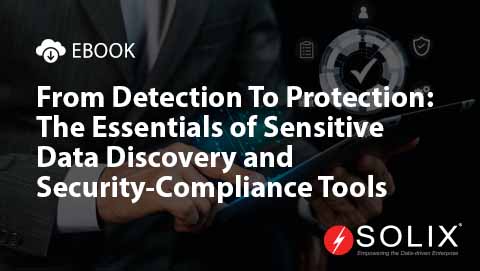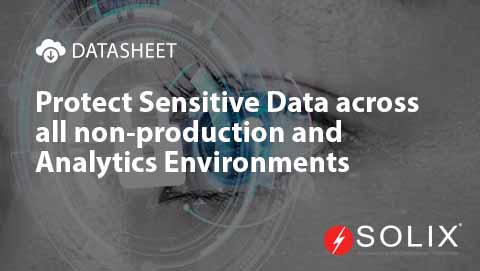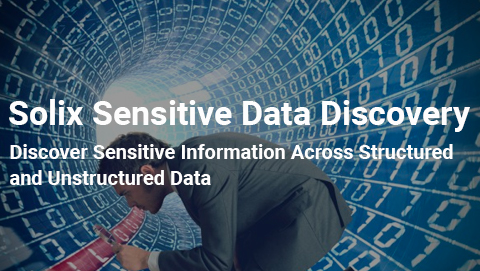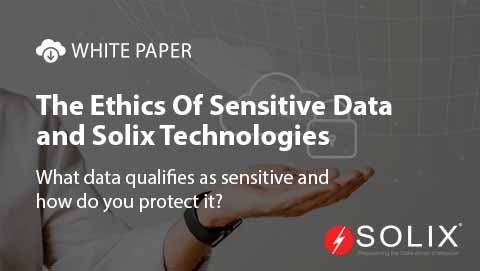
Start Your Free AI Journey Today
Start your free AI journey with Solix ECS AI for secure, automated document management for your workgroups.
Sensitive Data Is Everywhere and Often Unseen
Sensitive information like Personally Identifiable Information (PII), Payment Card Information (PCI), and Protected Health Information (PHI) is present in structured and unstructured data formats and across production and non-production environments. Businesses are increasingly exposed to privacy violations, compliance fines, and reputational damage from legacy databases to cloud apps, often without knowing where their sensitive data resides.
While production data is carefully secured, data in development, QA, and other non-production environments do not have the same levels of security and permission-based access controls. This leads to unauthorized dissemination/access of sensitive data, exposing enterprises to regulatory non-compliance that could lead to significant monetary fines and loss of customer trust.
A common strategy for maintaining security in non-production environments is to mask, scramble, or otherwise replace the sensitive data. Before sensitive data can be masked, it must be identified, and that is no small task considering the large volume, wide variety, and number of data locations that today's organizations have to deal with. The risk of data breaches, regulatory penalties, and reputational damage is higher than ever. As data volumes explode, manually tracking regulated information across clouds, databases, and file systems is impossible. You need a smarter way to uncover and protect your sensitive data—before it’s too late.
Know Your Enterprise Sensitive Information at the Core
Solix Sensitive Data Discovery is your first line of defense in enterprise data privacy. Built to scan across your data ecosystem—on-prem, cloud, hybrid—it intelligently identifies sensitive data using advanced scanning and auto-discovery capabilities, and empowers organizations to locate sensitive information across complex data landscapes, ensuring compliance with GDPR, HIPAA, CCPA, and other regulations.
With a seamless, scalable platform that integrates directly into your data privacy workflow, you gain full visibility into where sensitive data lives, how it flows, and who can access it. Solix Sensitive Data Discovery provides data officers with a single pane of glass view into the complete enterprise data landscape (both production & non-production). Using out-of-the-box or custom algorithms, data officers can quickly discover and report on industry-standard sensitive information, such as PII, PCI, and PHI, and confidential information unique to their organization.
The Solix Sensitive Data Discovery’s ability to scan through structured and unstructured data addresses the key issues of sensitive data discovery for today's modern organizations. The discovery functionality can be extended with the Solix Data Masking capability to secure sensitive data.
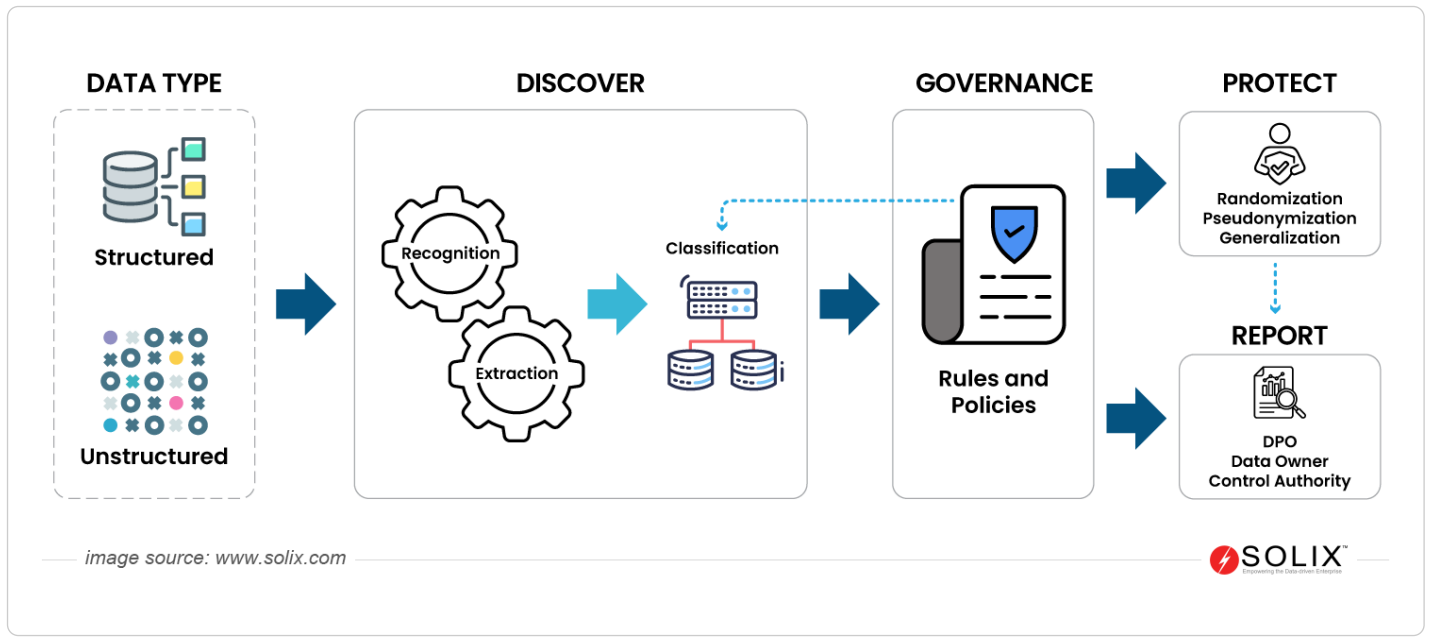
Sensitive Data Discovery Features
Solix Sensitive Data Discovery scans structured and unstructured data, identifies PII, PCI, PHI, enables compliance, and integrates advanced masking capabilities
Precision Engineered for Enterprise-Scale Discovery
Solix Sensitive Data Discovery facilitates compliance by automating the identification and protection of sensitive data, supporting adherence to industry regulatory standards such as GDPR, HIPAA, and PCI DSS. This ensures organizations meet legal requirements and maintain robust data governance.
Enterprise Data Landscape Scan
Systematically discovering, classifying, and securing sensitive information, such as PII, PCI, and PHI, across all environments, using automated tools and data masking to ensure compliance, minimize risk, and prevent unauthorized access to your enterprise data.
Pre-populated Rules & Advanced Pattern-matching Algorithms
Solix Sensitive Data Discovery uses pre-populated rules and advanced pattern-matching algorithms to automatically identify PII, PCI, PHI, and other sensitive data across structured and unstructured sources. Detect sensitive data using metadata, content scanning, and machine learning-driven pattern recognition.
Add New / Custom Rules & Patterns
Solix Sensitive Data Discovery empowers organizations to define and add new or custom rules and patterns, enabling the identification of confidential data unique to their business. This flexibility ensures comprehensive sensitive data discovery beyond standard PII, PCI, and PHI detection.
Integrated with Solix Data Masking
Solix Sensitive Data Discovery is seamlessly integrated with Solix Data Masking, enabling organizations to automatically identify and secure sensitive data across all environments. This unified approach ensures robust protection, compliance, and format-preserving masking for PII, PCI, PHI, and more.
Searches Across Metadata and/(or) Data
Solix Sensitive Data Discovery searches across both metadata and actual data to identify sensitive information. This comprehensive approach ensures that PII, PCI, PHI, and other confidential data are detected wherever they reside, supporting robust compliance and enterprise-wide data protection.
Adherence to Industry Regulatory Standards
Solix Sensitive Data Discovery facilitates compliance by automating the identification and protection of sensitive data, supporting adherence to industry regulatory standards such as GDPR, HIPAA, and PCI DSS. This ensures organizations meet legal requirements and maintain robust data governance.
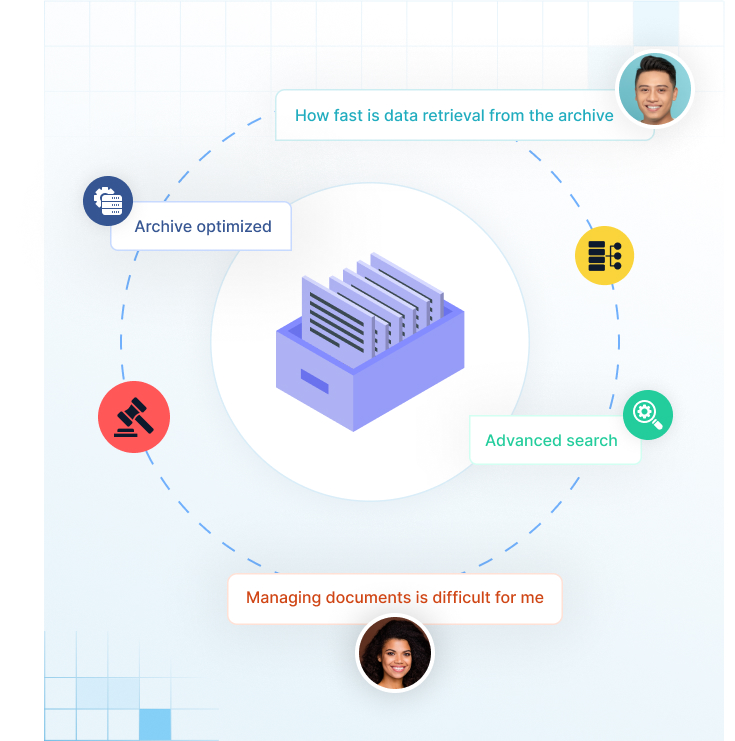






Meets All The Current Compliance Certifications
Aligned with Global Data Protection and Security Certifications
Customer & Partner Speak
Hear directly from Solix customers and partners as they share real-world success stories, measurable results, and transformative experiences with our solutions.

Sensitive data (such as credit card numbers), personally identifiable information (such as U.S. Social Security numbers), medical diagnoses, and even non-personal sensitive data (such as corporate financial information and intellectual property) are exposed to abuse or negligence from enterprise employees and outsiders. Adopting data masking will help enterprises raise the level of security and privacy assurance against insider and outsider abuses. At the same time, data masking will make enterprises compliant with the security and privacy standards recommended by regulating/auditing organizations.
Joseph Feiman
Ph.D. Research VP and Gartner Fellow Gartner
Reference: Hype Cycle for Application Security 2012, 20 July 2012 – Doc # is G00229119
Related Resources
Explore related resources to gain deeper insights, helpful guides, and expert tips for your ongoing success.
-
eBook
From Detection To Protection: The Essentials Of Sensitive Data Discovery And Security-Compliance Tools
Download eBook -
Datasheet
Protect Sensitive Data Across all Non-Production and Analytics Environments
Download Datasheet -
-
Why SOLIXCloud
SOLIXCloud offers scalable, secure, and compliant cloud archiving that optimizes costs, boosts performance, and ensures data governance.
-
Common Data Platform
Unified archive for structured, unstructured and semi-structured data.
-
Reduce Risk
Policy driven archiving and data retention
-
Continuous Support
Solix offers world-class support from experts 24/7 to meet your data management needs.
-
On-demand AI
Elastic offering to scale storage and support with your project
-
Fully Managed
Software as-a-service offering
-
Secure & Compliant
Comprehensive Data Governance
-
Free to Start
Pay-as-you-go monthly subscription so you only purchase what you need.
-
End-User Friendly
End-user data access with flexibility for format options.



